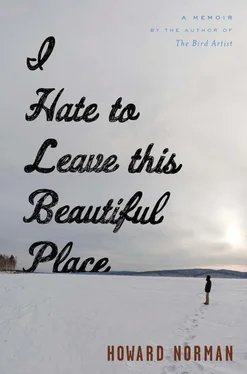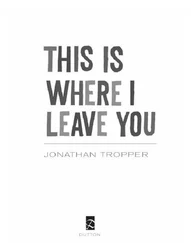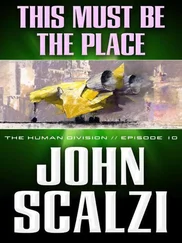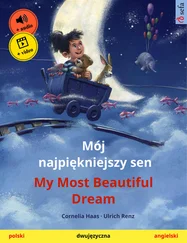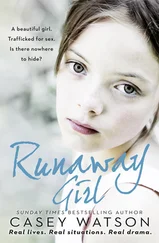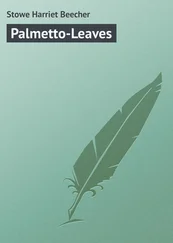“By the way, what were you doing out there today?” Halley asked me. “Are you a birder, God help us. Probably not the sort I hate, because you had those cheapo field glasses.”
“No, not that sort of birder, if I understand you correctly. Though I’d love a better pair of binoculars, that’s for sure.”
I suppose I could have delicately alluded, in a way that might honestly address Halley’s question but at the same time indicate my discomfort in dwelling on the subject, to the haunting incident that had occurred in my house. In turn I could have said that I’d come out to Point Reyes to lose myself among shore birds, to walk every trail until I could hardly walk another step, to empty out physically and mentally, then get filled again. But for goodness sake, if the best way out was always through, it didn’t mean one couldn’t afford to take a moment away from the effort. Besides, I thought that to foist all of that bleakness on these kind, engaging folks at our candlelit table, with a full moon rising, during such a get-to-know-each-other meal, would be, as we used to say in the sixties, too heavy.
But I’d had a little too much wine and said, “Out at McClures Beach I wanted to be invisible for a few hours, go out there on the rocks, all that sun and big waves, and sit right next to an oystercatcher, and it would look up every so often, sensing something was there, but then go about being an oystercatcher again.” And I don’t know what got into me, but I added, “Amen.”
My existential riff had the effect that is sometimes the case when something of staggering pretentiousness or insufferable sentimentality, however genuine, is spoken: it caused an eyes-cast-to-table silence for a moment. Then Sonam ordered espresso for himself and Halley.
“You know,” Halley said, “I might have two or three photographs of oystercatchers. Sonam, would you mind looking in my studio when you get home tomorrow? You know, the photographs are filed away in alphabetical order. If you find oystercatchers, bring them back Friday so our friend here can have a look.”
After dinner I sat again on the porch of the inn; the late-night air drew out the fragrance of eucalyptus even more intensely. I thought of Nabokov’s phrase “memory perfume.” The inn’s resident, almost lynx-sized cat, Truffle, bounded up onto my lap, a very well-fed animal, and settled in nicely. She allowed me to comb her back with my fingers, and whenever I made the effort to lift and set her down, she dug in with her claws. I quickly understood that this cat would decide when she was through with me.
Mulling it over, I was not so sure I wanted to see photographs of dead oystercatchers just when I was becoming so engaged with the lively oystercatcher I’d seen at McClures Beach and hoped to see much of during the next ten days. Perhaps Sonam wouldn’t find the photographs. I hoped he wouldn’t.
But sitting in the eucalyptus breeze, feeling Truffle’s growl-purr roll in a kind of gentle, seismic wave from head to tail, with nothing to do but wait for the familiar, advanced signs of insomnia, I thought hard and with some uneasiness about why I had been so willing to subscribe to Halley’s reductionist philosophy of life and death. Why couldn’t I muster up a response that was more natural to my character, something caustic, or at least probing? Why didn’t I confirm, if only in my private thoughts, that death in fact is not “all pretty straightforward”? Of course we’d really just met, but that was not it. Maybe Halley’s platitudes offered solace, in the way a beautiful landscape can offer solace. If you are fortunate and willing, you can live inside it with perfect equanimity.
At dinner I’d been impressed by Halley’s phrase “eddies of wet feathers” to describe what she was reminded of when she looked at her photograph of a dead crow she’d recently developed in a darkroom in Point Reyes Station. When I went up to my room at about two A.M., that photograph was leaning against my door. Taped to it was a note:
See the moon? It’s about 1:30 A.M. now and in an hour I’m heading out to McClures Beach. Sonam may or may not go with me. Nobody’s supposed to be out there at night but you can only see certain things at night. So that’s where I’ll be — since you seem interested in my work. By the way, oystercatchers sometimes are active at night, if there’s a big moon and so on, little known fact. But I’ve seen that. Halley.
Generous invitation, I thought, and sat down on the overstuffed chair in my room, switched on the floor lamp, and looked at the photograph. I saw the eddies: three stilled whorls of black feathers on the crow’s mangled body, and each appeared to be sculpted by a water spout. Studying the picture, I went from being almost repelled by the eerie vortexes to imagining what a mercy it must have been for the bird to blink out of consciousness, to perish, all evidence indicating (“Almost every bone was broken,” Halley had said) that the crow had been tumultuously storm-tossed, spun, and plummeted to the ground. In other words, I was beginning to see things from Halley’s point of view, and in that I found a reprieve, because I was sick and tired of my own morbid distress about life and death and what felt like my painful dislocation of soul.
I set aside the photograph, took up my paperback copy of Frost’s poems, and read through “A Servant to Servants” (whose narrator admits that she has been away in the state asylum), and while reading heard mourning doves, which I’d never heard before at night. Just in the past five minutes my new education in birds — Halley’s experience of seeing oystercatchers, and my hearing the doves — made for interesting speculations about the role of moonlight in extending the diurnal activities of birds on into the nighttime hours. I fell asleep in my clothes, crosswise on the bed.
Now, I’m more than aware that relating a dream makes most people’s eyes glaze over as they morph into the figure on the bridge in Edvard Munch’s The Scream. But the dream of mine I want to tell illustrates Rilke’s idea that the unspeakable is quite capable of intervening on any normal day of waking, breathing in the hours, and dreaming. Anyway, my dream was set in a Chinese restaurant in the North Beach section of San Francisco; I recognized the location because, looking out the window, I saw City Lights bookstore. Sonam, Halley, and I had just completed a feast; bowls, plates, chopsticks, glasses, and teacups were on the table. Sonam and Halley read their fortunes and shared them with each other; Halley looked at me and said, “Same old, same old.” Out of nowhere, an ancient-looking hag with beautiful cat’s eyes — I think they were Truffle’s — threw herself onto our table. Shocked, frightened, Halley and Sonam pushed their chairs back. The old woman clamped my face between her hands (their texture was like sandpaper) and shouted, “ I beg you, don’t read your fortunes! Don’t read your fortunes! ” I was aware of being puzzled about why she used the plural fortunes, since there was only a single fortune cookie remaining in the porcelain bowl. Then, in a phantasmagoric locution, a squalling flock of seagulls flew in, lit on the hag’s shoulders, lifted and carried her off, out the door and in the direction of the ocean.
The restaurant, absent waiters, cooks, and other customers, was now fog-ridden and cold. For some reason I snapped open my fortune cookie. A bunch of fortunes sprang out, as if in a heart-attack surprise from a jack-in-the-box, and rose to the ceiling, where each was caught by the tongue of a magnificently painted dragon. A wooden ladder with wheels presented itself, and I climbed it to the top rung and read the fortunes, going from dragon mouth to dragon mouth. As it turned out, they were not the sardonic witticisms or prefabricated proverbs we generally associate with fortune cookies. Instead they were — and I comprehended it right then and there in the dream — replications of entries in those three-by-five black notebooks Reetika Vazirani had tried to hide, or hide in plain sight.
Читать дальше
